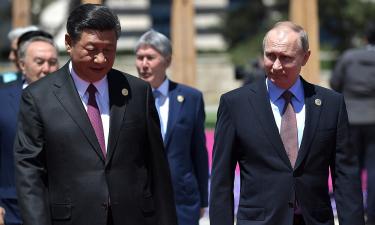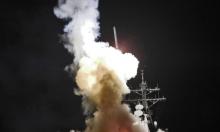Ending economic crisis simply and easily, in America and globally (Part II)
by Stephen Lendman

…continued.
Click here to read Part I.
What began earlier as notes, today are accounting entries that literally create money out of thin air. And it works the same for government as for privately-owned banks, except for the following.
As publicly-run institutions, their mandate is entirely different:
-- they don't have to earn profits;
-- they're not beholden to Wall Street or shareholders; and
-- only the state's creditworthiness matters, and so far, in over 230 years, no state ever went out of business and virtually none ever default on their debt, even when poorly governed.
Further, they can lend to themselves and municipalities interest-free, and to businesses, farmers, and individuals at low affordable rates to create internal growth and sustainable prosperity. And the more often loans are rolled over, the more debt-free money is created - without fear of inflation.
As long as new money produces goods and services, inflation can't occur. Only imbalances cause problems - "when 'demand' (money) exceeds 'supply' (goods and services)." Price stability is assured when both increase proportionally, and that's exactly how it worked in colonial America and under Lincoln during the Civil War as Brown explained in "Web of Debt."
In 1691, Massachusetts became "the first local government to issue its own paper money...." called scrip. Other colonies followed, Pennsylvania most effectively by issuing new money without inflation or need for taxes. For over 25 years, it collected none, and at the same time, its population grew and commerce prospered. The "secret was in not issuing too much (credit), and in recycling the money back to the government in the form of principal and interest on government-issued loans."
In other words, keeping everything proportionally in balance and not having to pay interest to predatory private lenders - the very system wrecking America today and other economies run by private central banks.
Lincoln did the same thing in spite of assassination threats before his inauguration as well as "treason, insurrection, and national bankruptcy" during his first year in office. Considering what he faced, his accomplishments were remarkable, including:
-- building the world's largest army;
-- defeating the South;
-- turning the country into the world's "greatest industrial giant;"
-- launching the steel industry, a continental railroad system, and a new era of farm machinery and cheap tools;
-- establishing free higher education;
-- giving settler ownership rights and encouraging land development through the Homestead Act;
-- having government support all branches of science;
-- standardizing methods of mass production;
-- increasing labor productivity by 50 - 75%; and
-- still more "with a Treasury that was completely broke and a Congress that hadn't been paid."
He did it by nationalizing control over banking so government could print its own money - interest free without paying usurious rates that private bankers demanded, from 24 - 36%. As a result, "the economy was jump-started with a 600 percent increase in government spending and cheap credit directed at production" - done with government-issued Greenbacks. They financed the war, paid the troops, and spurred the nation's growth - free from the system wrecking the country today to let parasitic private banks prosper.
In "Web of Debt," Brown explained that early 20th century Australia operated under a publicly-run bank as well - its Commonwealth Bank that created money, made loans, and collected interest at a fraction of what private bankers charge. It worked well enough for the country to have one of the highest living standards in the world at the time. Once private bankers took over, Australia became heavily indebted, and its living standard fell to a 23rd place ranking - clearly showing the destructive power of private bank-created money and overwhelming benefits possible when governments print their own.
America today can have the same advantages instituted by:
-- its colonists;
-- Lincoln;
-- early 20th century Australia;
-- the Middle Ages, falsely portrayed as a backward and impoverishing era only saved by industrial capitalism; in fact, under its banker-free tally system, it prospered for hundreds of years; and
-- China for thousands of years before the era of private banking, and today because Beijing directs The People's Bank of China (its semi-independent central bank) to grow the nation's economy and create millions of jobs for its burgeoning population.
America and world economies can be just as prosperous but only with determined effort enough to replace their corrupted systems with one that's fairest and works best .
A publicly-run banking system benefits everyone by using deposits for sustainable internal growth and government needs - at the state and local levels. And for the federal government, by printing its own money interest-free for the same purpose.
This writer and Brown believe that credit should be a public utility under a nationalized banking system, creating its own money at the federal level and with deposits into state-run banks - to serve people, not predator bankers. It would be the most equitable, sustainable, efficient and democratic system, free from parasitic lenders, and it would work equally well at the federal, state and community levels with local branches of government banks serving municipalities, their businesses, and residents at affordable costs.
Under the privately-run Federal Reserve and parasitic giant banking system, corporate monopolies run America and use "their affiliated banking trusts to generate unlimited funds to buy up competitors, the media, and the government itself, forcing truly independent private enterprise out" - the very system classical economists abhorred.
Private banks hold nations hostage by making them pay interest on their own money as well as "advanc(ing) massive loans to their affiliated cartels and hedge funds, which use the money to raid competitors and manipulate markets."
In America, it's an extreme form of Darwinism with the federal government and 46 of the 50 states insolvent - and small businesses and ordinary people faring worst. Another way is essential to keep the nation, individual states, local communities, and most people from becoming "zombies" and America transformed into Guatemala.
With federal, state, and community banks made a public utility under a nationalized banking system, consider the benefits:
-- personal and payroll taxes could be eliminated;
-- stable, sustainable economic growth could be generated;
-- America's manufacturing base could be rebuilt;
-- vital infrastructure projects could be undertaken on a scale never before imagined, including cleaning up the environment and developing alternate, sustainable, clean, safe, and affordable energy sources;
-- many millions of new good-paying jobs could be created, putting an end to unemployment for everyone willing and able work; and for those willing but unable, aid could be provided;
-- home foreclosures would end, and the dream of home ownership would be in reach for everyone because mortgages would be plentiful, cheap, and not designed to scam the unwary;
-- inflation could be ended;
-- booms and busts would be a thing of the past;
-- destructive currency devaluations and economic warfare for private gain would no longer be a threat;
-- private pensions, savings, and investments would be secure; and
-- federal, state, and local debt could be eliminated.
Imagine the following:
Weeks back, Bloomberg and others reported that from $12 - 14 trillion in bailouts and stimulus have been allocated or spent, while the Fed can't account for $9 trillion in off-balance sheet transactions. Why? Because of unprecedented willful fraud given a wink and nod by the highest officials in Washington partnered with criminal bankers to loot the Treasury and fleece the public.
Now imagine if $1 trillion of the total looted went to publicly-run banks for productive purposes. "Fractional reserve" magic would create $10 trillion. If around half of it went there (remember already allocated or spent), an astonishing $70 trillion could be used productively, not wasted, used to buy damaged assets cheap for greater consolidation, or for speculation at the risk of a severe future inflation. Then envision a new future:
-- the federal debt could be eliminated;
-- all unfunded liabilities, including Social Security, Medicare, and Medicaid would be secure in perpetuity;
-- the nation and all 50 states would become solvent and on their way to comfortable surpluses; and
-- a sustainable, inflation-free, prosperous future would result with essential social benefits for everyone, including affordable or perhaps free health care, education, and the end of poverty because a guaranteed minimum income could be assured.
Overall, it would be nothing short of a revolutionary new America, only rhetorically addressed up to now, with all winners and no losers - except the private predator banks and their corrupted public sector partners.
And remember, newly created money isn't inflationary as long as imbalances are avoided and it's productively used for new goods and services.
That's the kind of America to work for and not quit until achieved. If not now, when? If we don't do it, who will? If not done soon enough, it may be too late. If that's not incentive enough, what is?
Stephen Lendman
Subscribe to Pravda.Ru Telegram channel, Facebook, RSS!





